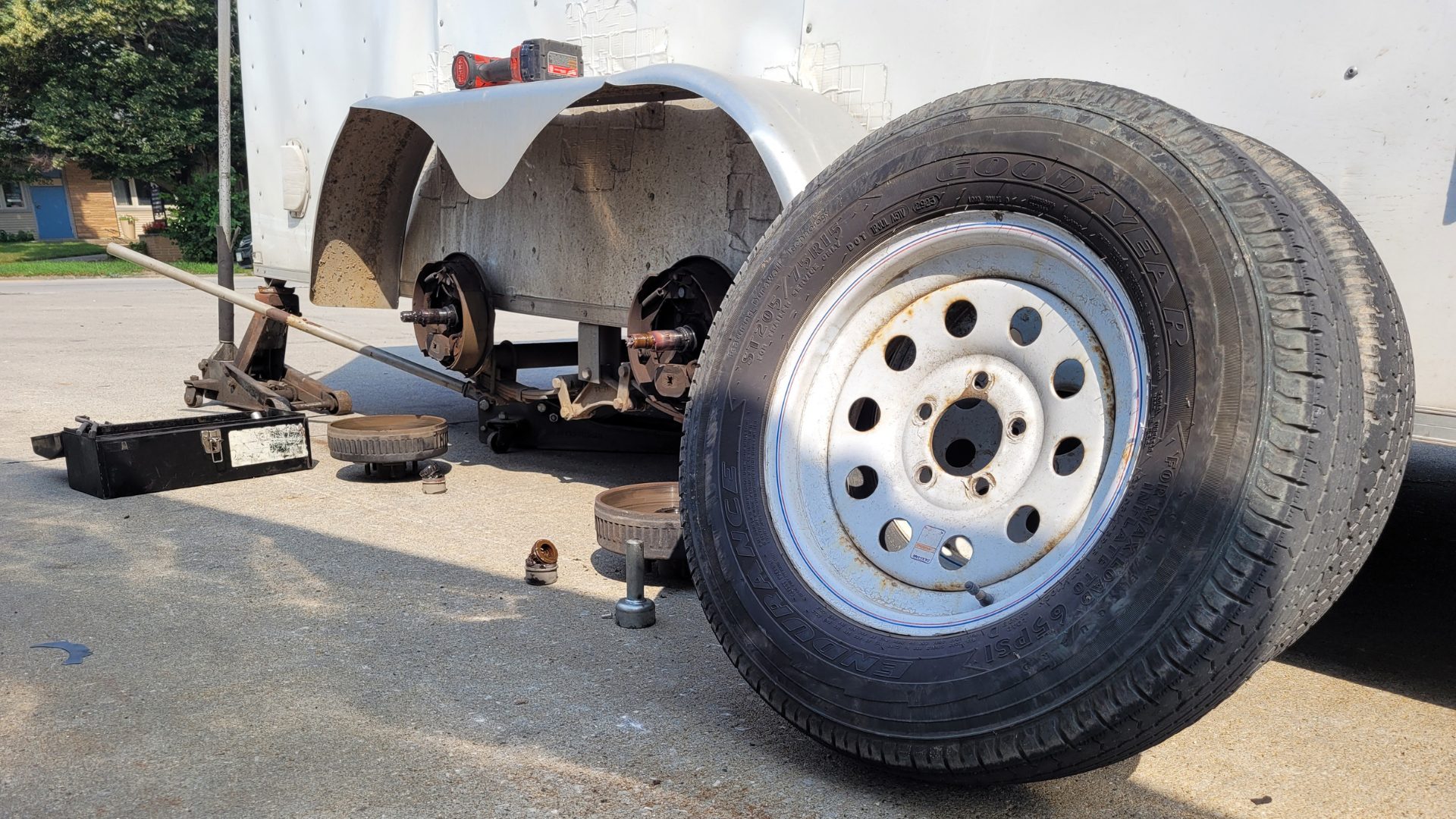This article discusses trailer maintenance for the end of summer. Tune back in next week for End of Summer Trailer Maintenance Part 2!
Summertime is a busy time for trailer towing! Your trailer is getting a lot of use, resulting in general wear and tear from blazing sun, dirt and debris, and summer rain storms. As the summer comes to an end, it’s time to check the vital parts of your trailer as you head into the Fall and Winter.
Any vulnerable or damaged component of your trailer can lead to unsafe driving conditions. Preventive trailer maintenance every few months can safeguard your trailer against additional wear and tear or long-term expensive, irreparable damage. Maintenance can keep your trailer functioning properly for years to come.
Use this checklist as a guide for general trailer maintenance checks:
Wheels & Tires
Summer weather can be hard on tires since tire tread wears more quickly during summer months. You can extend your tire life by always maintaining proper air pressure on trailer tires. Check your tires regularly for proper air pressure, debris, gouges, punctures, or other issues.
It’s important to also check your wheel bolts (also known as lug nuts) and ensure they are secured and tightened properly. Torqueing your lug nuts on a regular basis is a good habit to get into as it can often go overlooked. We recommend performing a retorque every few hundred miles and at least twice a year.
If you are noticing uneven tire wear and tear, this may indicate potential issues with your trailer’s axles. It’s important to remember that all trailer components work together – so when one component has issues, it can negatively impact other components.
The chart in this article is a helpful resource to help you diagnose your trailer tire wear and uneven treads. If the axles are out of alignment, this may cause the trailer to pull to one side. Alignment issues can also cause uneven wear and tear on the tires.
Axles
If your trailer tires are wearing quicker than normal, or you notice an issue with your tire’s traction, your trailer axles may be the reason for it. If your axles are out of alignment, this causes excessive wear on your tires and can cause your trailer to pull to one side.
You must inspect and service your trailer axles regularly. Axle inspection includes peeking underneath your trailer for bent or damaged axles or axle components. Also, check for rust which can lead to future corrosion if not treated. Prevention is everything when it comes to rusting trailer axles. You can prevent rusting by coating axle components such as Leaf Springs, U-Bolts, Hangers, Shackles, and Equalizers in grease. Not only does this grease help prevent rust, but it also allows the moving components to move more freely. Frequently washing the underside of the trailer and applying grease is one of the best ways to keep your axles and their components in roadworthy condition.
Trailer axles themselves also require proper lubrication to perform properly. Whether that’s grease or oil, lubricating the hub assembly will allow for the bearings to stay cool when spinning and have a longer lifespan. Keeping fresh lubricant within the hubs themselves will not only allow its internal components to last longer, but it also eliminates the danger of having the hub fall off your trailer during use.
If you find that your trailer axles are worn or damaged and need to be replaced, contact BlueSwift Axles to help. Driving a trailer with damaged axles can put added stress on your tires. This can cause tire damage and unsafe driving conditions for everyone on the road.
See our video below for more information on BlueSwift Axles and the solutions we can provide for you.
Preventive Trailer Maintenance is Important
Routine trailer maintenance is important for the longevity of your trailer. Like any piece of equipment, your trailer parts may experience wear and tear over time. Knowing when and how to detect possible issues with your trailer is important to ensure safety while hauling. Ignoring possible maintenance concerns can also result in more costly repairs in the future.
Come back next week for Trailer Maintenance Part 2 where we will discuss maintenance for your trailer’s electrical components, brakes, and breakaway system.
